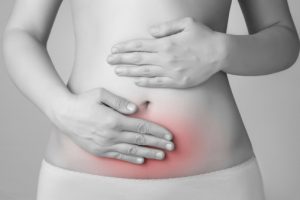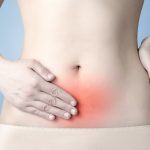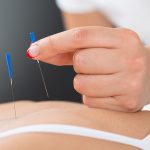 This March is National Endometriosis Awareness Month, and in recognition, here are five of Bel Marra Health’s pieces on the subject, including information on the endometriosis diet, irritable bowel syndrome, and heart disease.
This March is National Endometriosis Awareness Month, and in recognition, here are five of Bel Marra Health’s pieces on the subject, including information on the endometriosis diet, irritable bowel syndrome, and heart disease.
Endometriosis diet: Foods to eat and avoid
Endometriosis is a condition that occurs in women where the tissue outside of the womb in the pelvic area begins to thicken and breakdown, mimicking the behavior of tissues within the womb. While there is no known cure for endometriosis, there are ways of managing symptoms that make living with this condition easier. One way to lessen the discomfort associated with endometriosis is to follow an endometriosis diet that follows similar guidelines to those detailed below. Continue reading…
 Irritable bowel syndrome (IBS) vs. endometriosis: Causes, symptoms, risk factors, and complications
Irritable bowel syndrome (IBS) vs. endometriosis: Causes, symptoms, risk factors, and complications
Advertisement
Irritable bowel syndrome (IBS) and endometriosis both result in abdominal pain, and it’s been found that women with endometriosis are at a higher risk of developing irritable bowel syndrome.
IBS is a functional disorder, meaning it is not a disease per se, so the symptoms don’t have an identifiable cause. IBS patients show no clinical signs of a disease and often have normal test results. IBS is sometimes referred to as spastic colitis or mucous colitis, but that’s an erroneous nomenclature, as itis signifies inflammation and IBS does not cause inflammation. Although IBS is not such a critical condition, it can still severely affect one’s quality of life, as it can cause a great deal of discomfort and distress. The symptoms of IBS, ranging from mildly annoying to disabling, can interfere with a person’s social life, the ability to work or travel, and also affect their self-image. Continue reading…
 Endometriosis pain relief with acupuncture, white blood cell study opens new treatment opportunity
Endometriosis pain relief with acupuncture, white blood cell study opens new treatment opportunity
Endometriosis pain relief with acupuncture has been studied recently along with white blood cell research, which opened the door for new treatment opportunities for endometriosis. Endometriosis is a condition in which uterine tissue grows outside of the uterus in other regions of the body. The condition affects roughly 6.3 million women in America alone, and a better understanding of endometriosis can help contribute to better treatment options or a possible cure.
Acupuncture is an ancient Chinese medicine technique that uses thin needles inserted at specific trigger points as a means to channel the body’s energy to improve pain. Continue reading…
 Endometriosis risk is higher in slim women than obese women, infertility and BMI link: Study
Endometriosis risk is higher in slim women than obese women, infertility and BMI link: Study
Endometriosis risk is higher in slim women than obese women, according to research. The findings uncovered that morbidly obese women have a 39 percent lower risk of endometriosis, compared to women with an average or normal body mass index (BMI). Women who were morbidly obese when they were 18 years of age had a 41 percent reduced risk of endometriosis, compared to women with normal BMI.
Advertisement
The association was seen strongest in infertile women—women who had been trying to get pregnant for over a year. They had a 62 percent lower risk of endometriosis if they were morbidly obese at the time of the study. Women who were morbidly obese at age 18 had a 77 percent lower risk, compared to women with lower BMI at age 18. Continue reading…
 Endometriosis linked to heart disease: Study
Endometriosis linked to heart disease: Study
A new study has linked endometriosis—the growth of uterine tissue outside of the uterus—and heart disease. The researchers found that women with endometriosis have a 60 percent higher risk of developing heart disease compared to women without the condition.
Heart disease risk in endometriosis was also found to be highest among women younger than the age of 40, as they were three times more likely to suffer heart disease than same-aged women without endometriosis.
The link could be explained by the endometriosis treatment, as other studies have shown that the removal of the uterus and ovaries have been affiliated with higher incidences of heart disease. Continue reading…
